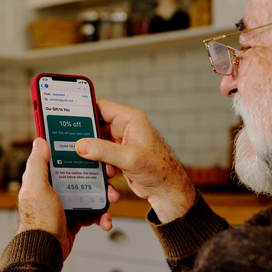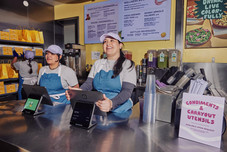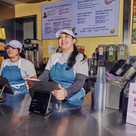To swim in today’s competitive environment, your products and services obviously have to be good. But research suggests that especially now, it’s more than just products and services that decide a company’s long-term success — it’s reputation.
The Reputation Institute just released its annual report measuring the public’s general perception of the world’s top brands. The report defines reputation as the sum of a number of factors, the most important being high-quality products and services, support of good causes, and a responsibly run company. Innovation, an appealing workplace, leadership, and high performance also contribute to reputation.
This year, Rolex edged out Amazon as the top company. In fact, it was the classic legacy brands that shined this year — Lego and Hallmark joined Rolex in the top five companies with the best consumer reputations. This demonstrates the importance of maintaining a consistent reputation and emotional connection with consumers if you want to create a lasting brand.
Rolex has been around since the early 1900s and is still the world’s top watchmaker. Even Apple has had trouble competing. Rolex has succeeded in part by touting its history as a rock-solid product in all its marketing, making consumers feel like they’re buying into a legacy instead of just the newest shiny object.
The brand understood early on that forging an emotional connection with customers was important. In 1927, to underscore its product’s durability, the company gave Mercedes Gleitze, the first woman to swim the English Channel, its new waterproof Rolex Oyster Watch. She was photographed in it all over the press, increasing public awareness of the watch’s quality and immersing the brand in an emotional moment. To this day, Rolex uses swimming imagery in its marketing.
Lego has also succeeded by tapping into a sense of nostalgia. With the awareness that many of today’s parents grew up playing with Legos themselves, the company’s “Let’s Build” ad featured a father and son bonding over their Legos. Campaigns like this help reinforce Lego’s mission to “inspire and develop the innovators of tomorrow.” It’s more about the enduring goal of fostering childhood development than today’s soon-disposable trending toy.
In addition to a sense of timelessness, social consciousness has also become a key driver of a positive consumer reputation. Allen Bonde, the chief marketing officer at the Reputation Institute, told Marketing Daily that this could be in response to the current political climate, which is driving consumers to reconnect with brands that speak to their core values. (Pepsi unsuccessfully tried to tap into this in its recent bungled campaign.)
An annual survey report from Good.Must.Grow found that six in ten consumers feel that it’s important to buy from socially responsible companies, and nearly one-third plan to spend more with socially responsible companies this year. Millennials, a critical consumer demographic, are most drawn to companies that demonstrate social consciousness.
Tom’s is the example that comes up most often here. Its now-famous “one-for-one” initiative gives a pair of shoes to someone in need for each pair purchased from the company. Tom’s has since expanded the program into eyesight care, safe water, and women’s health. To date, it has given 60 million pairs of shoes, helped restore sight to more than 400,000 people, provided 335,000 weeks of safe water, and helped support safe birth services for 25,000 mothers.
The brand now ranks higher than Nike in the Brand World Value Index for the millennial demographic, even though Tom’s is a fraction of Nike’s size (and has a fraction of its marketing budget).
Starbucks — a perennially popular brand — is another example. It’s known for treating its employees well, offering staff members health benefits, stock options, and tuition reimbursements. The company has also started programs to support economic development in some of America’s low-income communities.
To attract today’s consumers, you need to attach your business to something larger than just your products (although that is always important). Cultivating an inspiring brand ethos and purpose — and a good reputation — is critical to your success.
![]()











